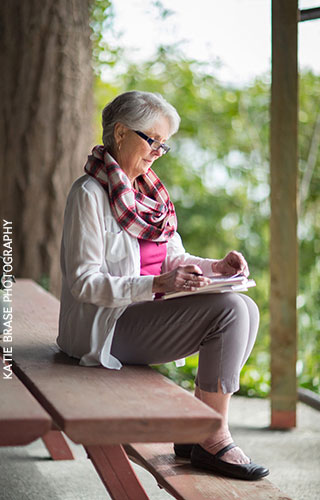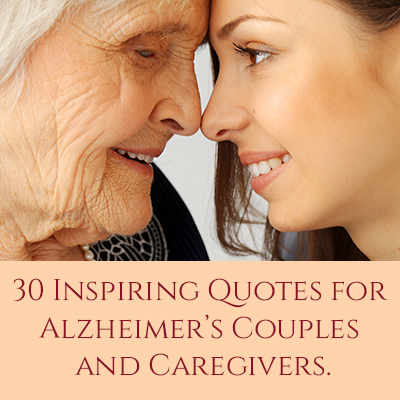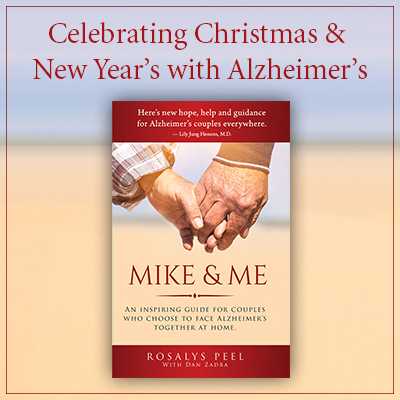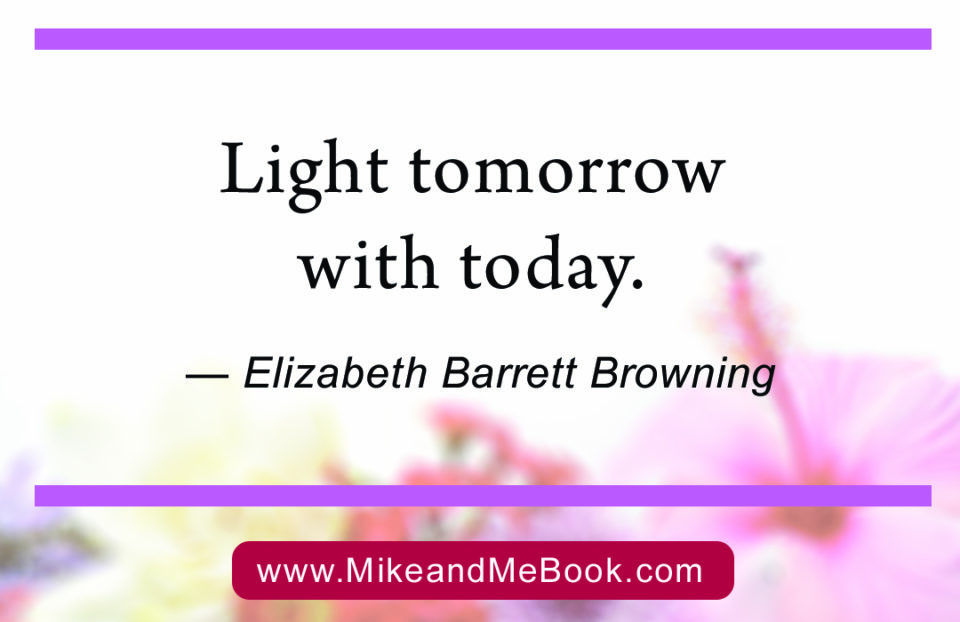
Managing Alzheimer’s on a Limited Budget
November 14, 2018
How Alzheimer’s Couples Stay in Love

The first rule is, “Never give up on your loved one.”
Mike & Me author Rosalys Peel
It’s a common fear and misconception: As Alzheimer’s advances, every couple wonders, “Will my loved one and I inevitably lose our special connection and fall out of love?” While every couple is different, I assure you that you should never accept the notion that it’s only a matter of time before your love is lost.
Consider this: Throughout the entire nine-and-a-half-years of my husband Mike’s illness, right up to the very last weeks before he died, Mike and I worked together to find new ways to maintain our close connection as husband and wife. Even when he could no longer talk, we learned how to continue expressing our love and appreciation for each other, long after conventional wisdom said our relationship should have ended.
What does this tell you? I think it tells you and every other couple who is experiencing this big bully of a disease that we may be giving up too much power to Alzheimer’s. Perhaps we should not be so quick to accept the prevailing notion that, sooner or later, our mutual love will surely be lost; that all memories will be wiped away; that our most tender and romantic feelings for each other will be forgotten; or that the very core of who our loved one is will inevitably be swept away by this disease.
In truth, we are now discovering that when two people are deeply bound in love and loyalty as a couple, they are often able to defy many of the old horror stories and deal with this disease together in ways that one person could never do alone. I think this is especially true when Alzheimer’s couples are living together in their own home. In Chapter 11 of Mike & Me, I have listed the many things that Mike and I were able to do together at home to maintain our special connection to the very end. And I am hopeful and confident that most, if not all, of the simple adjustments we made can also be made by you and your loved one.
WHERE DO YOU START?
First and foremost, make it an overarching rule that you will never give up on your loved one. By this, I mean never let the worsening symptoms of Alzheimer’s trick you into thinking that your loved one has drifted into an unconscious or uncaring state and is no longer “there” with you.
We now know that those who come out of a coma have often been far more aware of what was taking place around them than we realized. I can’t help but wonder if something like that is happening with our loved ones, and causing us to eventually give up on reaching out to them.
In Maria Shriver’s The Shriver Report, author Laura Suikomen Jones, a full-time caregiver for her husband, urges all Alzheimer’s couples to remember that, even as cherished memories may fade, “the heart does not know memory loss.”
LOVE LOOKS FOR ALL THAT STILL REMAINS
Shakespeare wrote, “Love adds a special seeing to the eye,” and this beautiful thought has special meaning to Alzheimer’s couples. With love you can look beyond your partner’s apparent limitations and see the light that still glows inside. Rather than look at all the imperfections or shortcomings brought on by Alzheimer’s love watches for any signs of awareness and affection. Love sees not just what your partner or friend has lost with this disease, but all the qualities and possibilities that are still left.
I agree wholeheartedly with the Alzheimer’s Association’s hopeful assurance: “As the disease progresses, your relationship with your spouse or partner who has Alzheimer’s will change; however, your connection can still be rich and fulfilling.”
For example, in the early years of his illness, Mike showed his love for me with a sincere thank you, a hand pat, a little smile, or a loving look that could make my eyes water.
But even in the final year there were always little signs that he still loved me and was still with me—if I would only stop to look for them: A calculated movement of his lips, a lingering look, a little smile we shared at a past memory, a raised brow, a wrinkle between his eyes when concerned for me, a smile of pleasure about something I did, or a little pucker of his lips for a kiss.
Yes, love adds a special seeing to the eyes. To stay connected with my loved one to the very end, all I had do was watch carefully for these little signs of love from him, respond to them, and appreciate them for the heaven-sent little miracles that they were.



